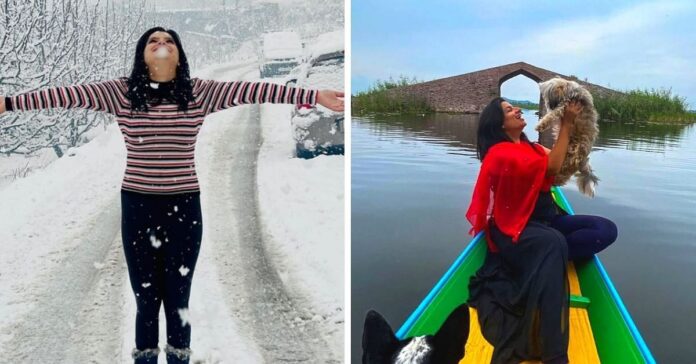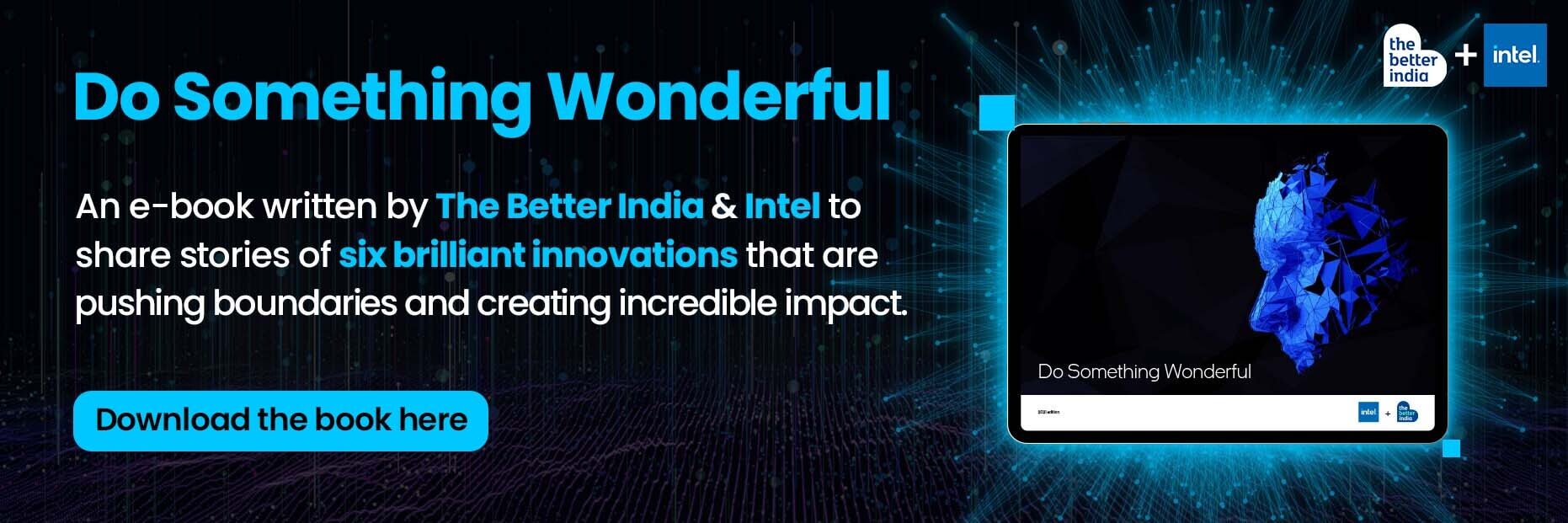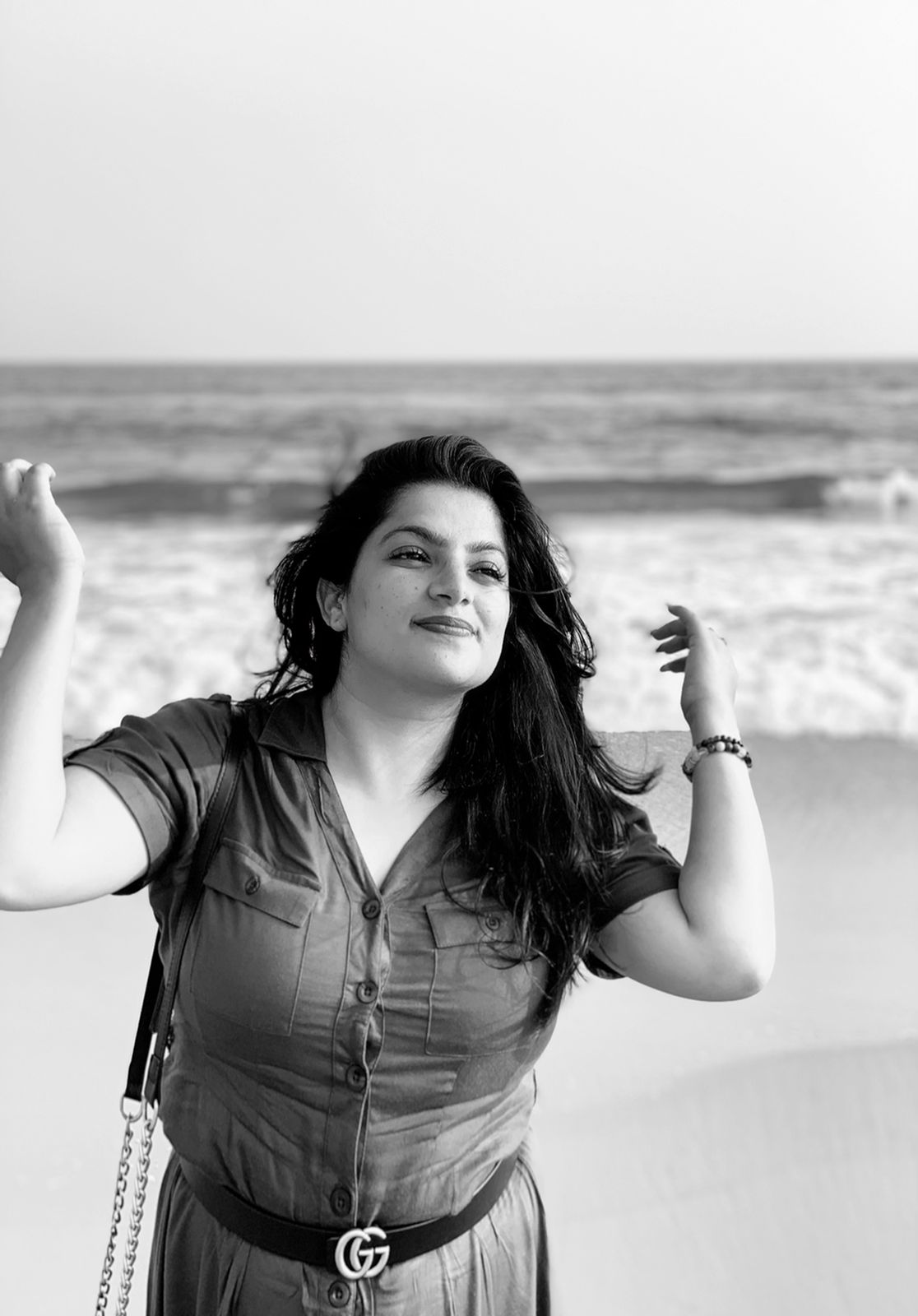The year is 2014, and Shivangi Sharma has been in and out of three crowded cafes in London in one day. So far, she has been unable to find an empty table to reserve or sit.
As a shy new student in uncharted territory, she has not yet heard of the ‘table pull’ concept, which allows you to share a table with strangers. She is yet to build up the courage to strike up conversations with strangers, or even her classmates back at her university.
This is the first time she is staying by herself, away from home. She feels lost.
The only solace she finds is in exploring the new city, famous for its subway rides, the Big Ben, and the river Thames. By the time the end of the semester rolls in, she has covered practically every part of the city.
Now in her thirties, Chandigarh-born Shivangi has come a long way. No longer shy and afraid, she has set out on a journey to explore the traveller within, soaking in new cultures, people, and places. Her travel troupe includes an army of 75,000 followers, who closely follow her vlogs and documented experiences online.
A lawyer by profession, Shivangi utilises court holidays and online court hearings to explore new places. Since she has created her Instagram account, brands, hotel chains, premium cottages, news media houses, and even the government have shown interest in different types of collaborations.
‘Travelling can transform you in unimaginable ways’
Shivangi does not belong to the club of voyagers who decide to monetise their holidays and earn a living out of it after quitting their full-time jobs. When she decided to travel solo, she was neither frustrated with her job nor looking for an opportunity to escape her reality.
It was just a simple desire to go on a road trip with her friends.
“It had been two years since the cafe fiasco in London, and I was much more confident now,” Shivangi recalls. “My day-trips in the UK had introduced me to new cultures and cuisines, and because India is such a diverse nation, I knew I just had to go on a road trip there. But my friends backed out at the last minute. I was very close to cancelling my trip, but then I remembered the rigorous driving lessons I had taken to go on this trip. In June 2016, I lied to my parents and left to explore Southern Indian states.”
As a young woman travelling alone, she had heard all the warnings she could about the safety of women in India. In particular, the Ariyalur gang rape case in Tamil Nadu had made her cautious. But she refused to give into the narrative that “India is not safe for women travellers”, she says.
Cautious as she may be, small incidents of sexism were unavoidable, she recalls.
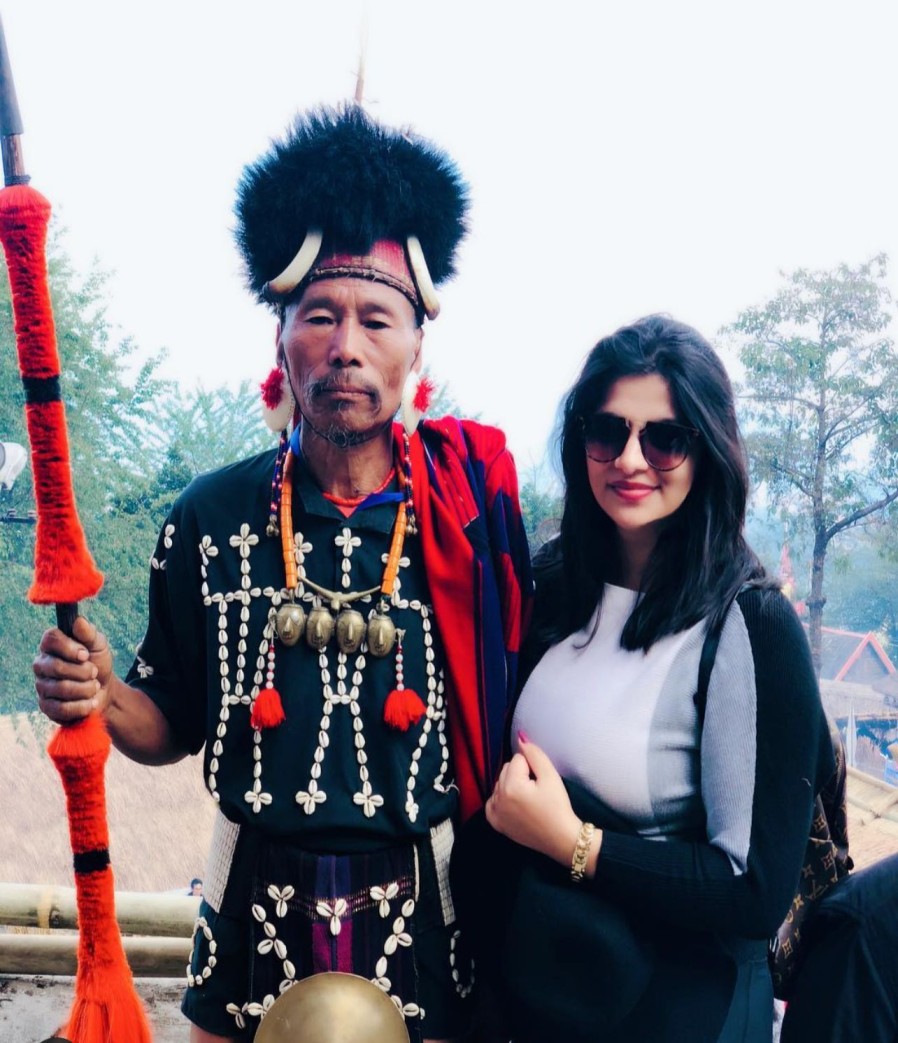
On one occasion, a rental car company insisted multiple times that she hire a driver in Bengaluru. But she stuck to her plan and drove down to Madikeri on her own, followed by Coorg, Wayanad (Kerala), Ooty (Tamil Nadu), and back to Bandipur in Karnataka.
“My friends and colleagues supported my decision to travel alone. I did not know how to fix a punctured tyre or change headlights. I forgot to get the RTO’s permit while crossing borders at Kerala. But the cops were understanding and asked me to get one after reaching Tamil Nadu,” she says.
As someone who was told to be alert at all times and never trust a stranger since childhood, Shivangi was very scared when a cop followed her for 5 km and later asked her to drop him at a particular spot.
“He sat in the car and realised I was uncomfortable and afraid. So he told me all about himself and made me comfortable. When I told him about my permit issue, he called someone from the RTO on the way and got me a permit without having to visit the office. That incident fuelled my confidence for the rest of the trip,” she says.
A year later, she found herself driving through the isolated roads and deserts of Rajasthan. That year, she also visited Himachal Pradesh and Uttarakhand. She discovered the joy of hostels and backpacking.
In Himachal, when her paragliding event was cancelled due to harsh weather conditions, she found a silver lining by making a friend on public transport. The new friend invited her to continue the trip with her group in Dharamkot.
“There was a time when I would get awkward while talking to people, and here I was visiting a new place with a stranger. Travelling can transform you in unimaginable ways. On my way, I did question my decision, but that trip turned out to be a memorable one,” she says.
Navigating tough roads to find fulfilment
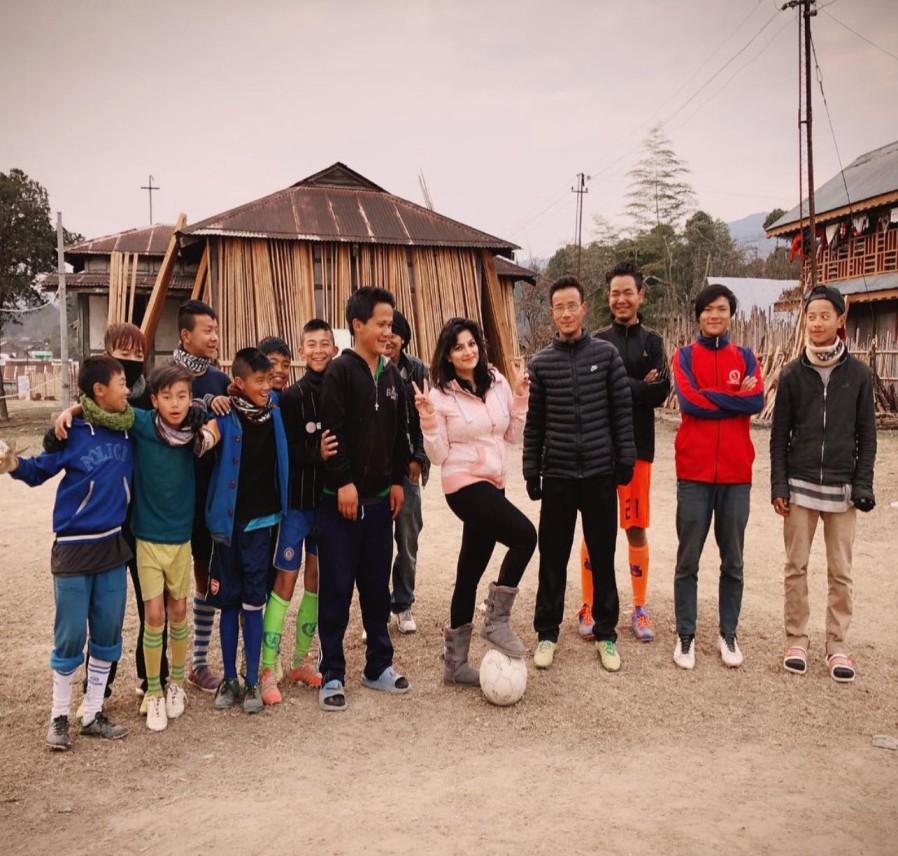
Shivangi says that in 2019, after two years of gathering experiences and wisdom, she decided to cover 29 Indian states in 39 days. This was after she came across a man who had travelled across the country in a month. But when she expressed her desire to do the same, her friends laughed, she says and said it was not everyone’s cup of tea, especially women.
That was enough to trigger her. This time, instead of lying to her parents, she told them the truth.
“Most Indian parents don’t understand the concept of solo travelling. They find it strange, and being a girl only makes everything more difficult. So I planned every minute of that trip including my stay, inter-city travel, food, etc, and showed it to my parents. I thought such meticulous planning would work in my favour, but things fell apart. My parents refused to talk to me for two weeks. They couldn’t understand why I had taken the responsibility of proving that India is safe for women travellers,” she says.
She did eventually manage to convince her parents and cover all the states as planned.
She started from Chandigarh on 8 March, which happens to be International Women’s Day, and covered a distance of 20,000 kilometres. To her surprise, a reporter from BBC reached out to her on 8 April to interview her.
“In the initial weeks, I had no support. My parents would shout at me over calls, my relatives discouraged me, and I had no validation of any sort. I had been crying myself to sleep on some nights. I was scared, lonely, frustrated and on the verge of giving up. Some stranger I had interacted with informed the BBC about my solo trip and they called me. That interview made me viral and I was back to being enthusiastic for the trip,” she recalls.
By 2019, Shivangi had a steadily growing number of followers, who were eager to hear from this girl who had been travelling solo and sharing interesting, weird, and fun stories.
The same year, she planned to cover the North East via public transport, with an aim to promote them as a safe commute to travel. She began her trip on 7 June.
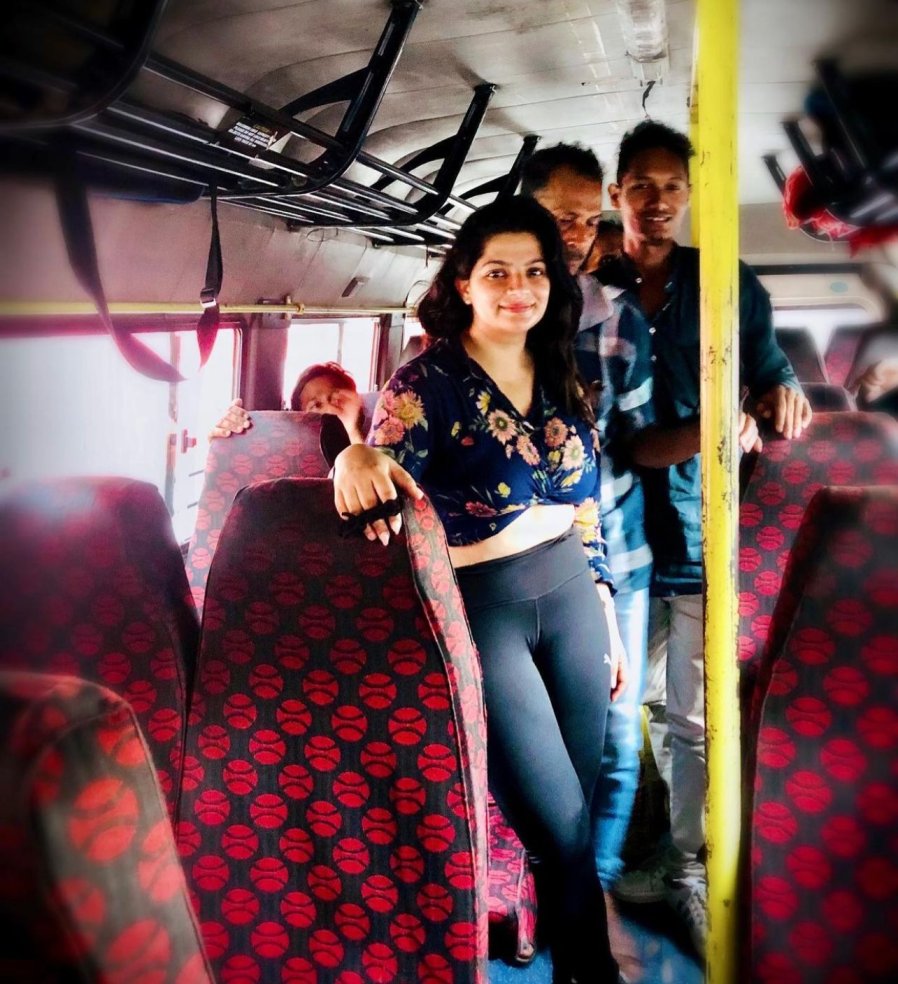
“One of the best things that happened on the trip was meeting then Assam chief minister Sarbananda Sonowal. I was staying in a bamboo cottage and the owner knew the purpose of my visit. He told this to the CM and he met with me. A journalist was also present there so he took my interview. My face was in regional newspapers and channels. So when I went to Arunachal Pradesh, an oracle priest arranged a circuit house for me,” she recalls.
Advertisement
Shivangi says she has collected 500 pages worth of research material over the years. While she loves visiting tourist hotspots, she never misses out on unheard or unexplored places, no matter how secluded they are. And most of the time, these areas are inaccessible as well.
“I visited Kerala’s Kodinhi village, which is known for the unusual number of twins born here. Forty five out of every 1,000 mothers give birth to twins here. The Marottichal village in Thrissur is famous for a tea seller who reduced alcohol consumption through chess boards. Meanwhile, Longwa villagers in Nagaland have dual citizenship of India and Myanmar. The King’s palace has a LOC marked and every time you switch places, the time zone in your phone changes. It is fun to see that,” she says.
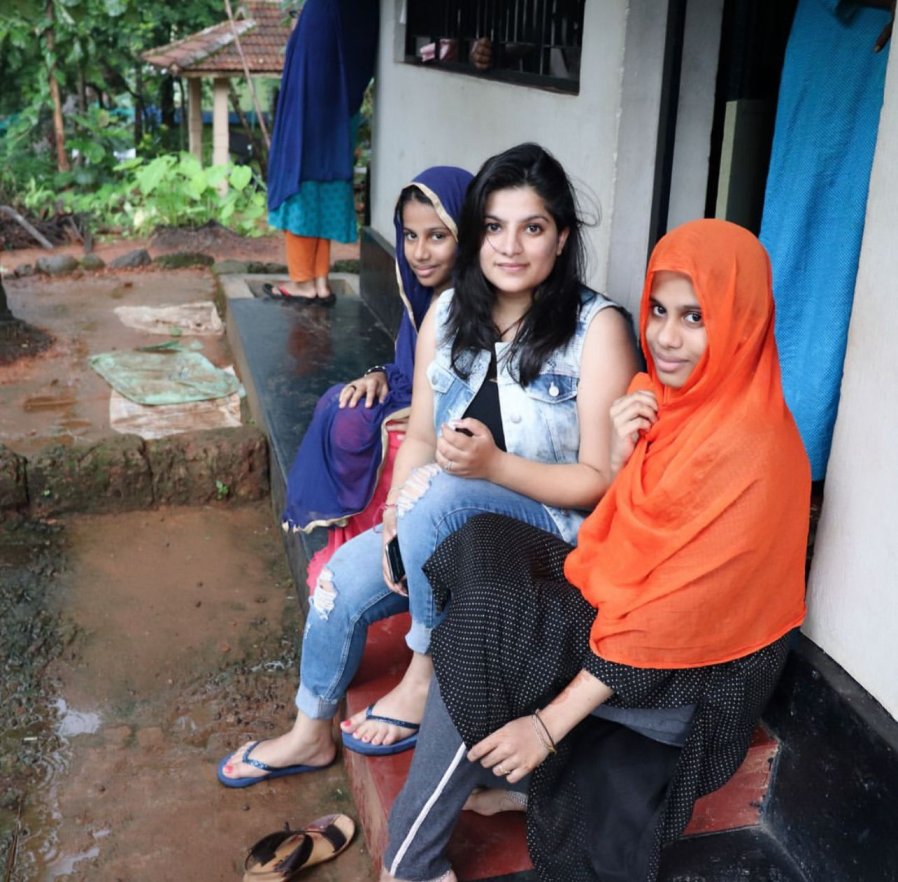
It is through recording these unique experiences that Shivangi gained popularity in the travelling industry. In 2019, she started receiving paid collaborations and property owners began inviting her to promote them.
The Odisha state tourism board invited her to visit every part of the state and churn out content during the pandemic. She ended up making a mini-series, which is expected to be released by a known OTT platform soon.
“The Odisha opportunity happened after my travel plans to the United States were cancelled due to the pandemic. I had quit my job and was ready to move there for three years and work with a travel channel. But then opportunities are plenty so instead of feeling sad about it, I grabbed something else and it all worked out fine. Now I have my own practice, which allows me to travel frequently,” she says.
To many, Shivangi’s travelling chronicles seem glamorous and fun. But sometimes, they can take an ugly shape, she notes.
“Although I have travelled alone and not face major safety issues, one has to be vigilant at all times,” she says. Travelling long distances with bad roads and phone connectivity can also be dangerous, she adds.
“When I was in a North Eastern village, my engagement was called off. I was heartbroken and there was nothing around to distract me. I was all alone in my room crying, and I even had panic attacks. Feeling homesick is another thing you have to deal with as a solo traveller. In places where people do not understand you or your language, it can get tough. Seeing people have fun in groups while you are having a meal by yourself is not a good feeling to experience all the time,” she says.
Regardless, Shivangi’s jet-setter nature fuels her to delve deeper into unexplored territories. Her latest project entails travelling to pet-friendly places with her two adopted dogs. She has already covered Kashmir and Manali. She is staying at each place for a month.
Offering tips to those who wish to set out on similar journeys, Shivangi says there are many ways to get paid or save money to travel. “Since nothing is free in this world, you have to be ready to offer something in return,” she says.
Shivangi suggest that there are four ways you can go about it:
1) Create a brand
“Invest some money in your travelling, make fun videos, and take unique pictures for your social media handles. Once you have a significant number of followers, pitch it to holiday properties. Make a brand out of yourself.”
2) Volunteering
“There are several hostels, homestays, and hotels that need volunteers to manage daily operations, host guests, or create content. In return, they offer free accommodation and food. A quick search on Google or social media pages can help identify such places.”
3) Offer your skills
“Good at computers, videography, accountancy, cooking or performing arts? Host workshops in hotels, hostels, etc, and charge a fee.”
4) Collaborate with brands:
While Shivangi stays away from product collaborations, she says it is a viable option to get paid by using beauty products, clothes, or eating food while on trips. “Brands even send you coupons that you can avail to get discounts on transport or accommodation,” she says.
Sources
The News Minute
The Better India
Outlook India
Edited by Divya Sethu

